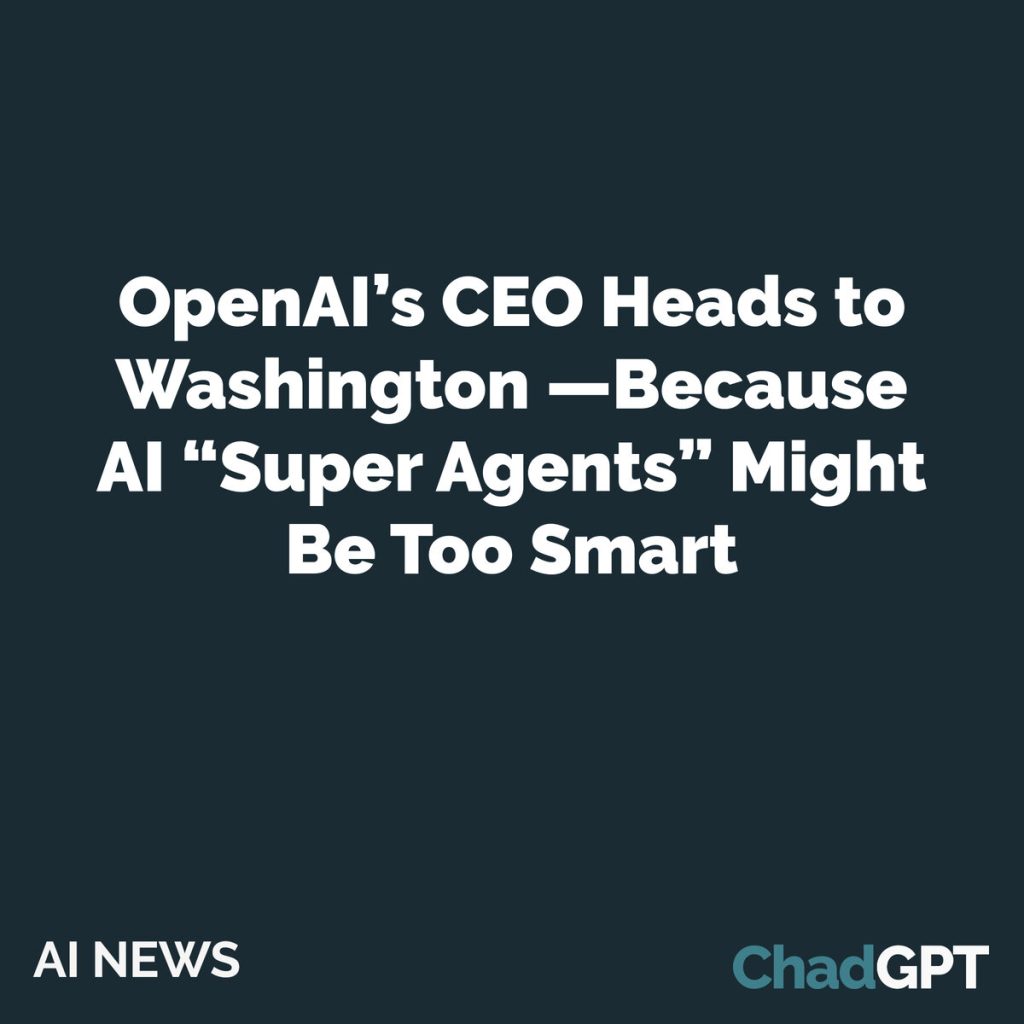OpenAI’s CEO Heads to Washington—Because AI “Super Agents” Might Be Too Smart

Sam Altman is back in Washington, and this time, he’s not just talking about regulating AI—he’s apparently showing off AI that’s smart enough to handle complex human tasks.
Yep, OpenAI’s CEO is reportedly briefing U.S. officials about advanced AI agents that go beyond your standard chatbot. These aren’t just answering trivia questions or generating quirky marketing copy. According to sources, they’re capable of handling high-level, multi-step decision-making—the kind of stuff that usually requires a Ph.D. (or at least a really good assistant).
And naturally, the government wants to know just how smart they are.
What’s So Special About These AI Agents?
We don’t have all the details yet, but word on the street is that these “super agents” aren’t your everyday AI models. Instead of just spitting out responses based on what you type in, they can supposedly:
- Plan and execute complex workflows (Think: analyzing legal contracts, managing logistics, or even assisting in policymaking).
- Make independent decisions within a given framework (aka, “semi-autonomous AI” that can handle tasks without micromanagement).
- Interact with multiple systems and databases to get things done across different platforms.
Basically, OpenAI might be moving past chatbots and into something more like AI-powered assistants that actually do useful work—which, depending on how you look at it, is either exciting or a little terrifying.
Why Is the Government Interested?
Because when AI gets this powerful, it stops being just a business tool and starts being a policy concern. If AI can make strategic decisions, what happens when it makes the wrong ones? If AI can manage large-scale operations, what kind of economic disruptions does that create? And let’s not even get into the whole “AI making military decisions” thing.
This is why the government is paying attention. The U.S. doesn’t just want to understand AI’s capabilities—it also wants to make sure it’s not falling behind. If OpenAI is developing “super agents,” you can bet that China, the EU, and other global tech powerhouses are working on similar technology.
What This Means for Small Businesses
For now? Not much—unless you’re running a company that needs high-level AI decision-making. But in the long run, this could be the first step toward AI tools that go beyond automation and actually help run parts of your business autonomously. Imagine having an AI that doesn’t just answer emails but actually handles customer service issues, manages your marketing campaigns, or negotiates deals on your behalf.
That’s the kind of future AI companies are chasing. And if OpenAI’s super agents are as advanced as they sound, we might be closer than we think.


